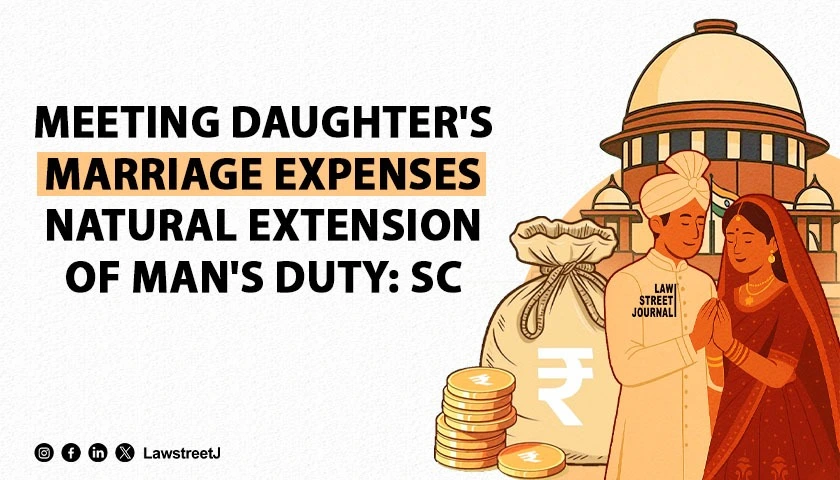NEW DELHI: The Supreme Court has said that meeting reasonable expenses of daughter’s marriage is a natural extension of the father's duty.
The top court directed a man to pay Rs 10 lakh to his wife for this purpose, while upholding the grant of divorce to the couple, living separately since 2009.
Dealing with a Delhi woman's petition against grant of divorce, a bench of Justices Vikram Nath and Sandeep Mehta found it was evident that the marital relationship between the parties entered in 1996 has ceased to exist in substance and even an attempt at mediation proved unsuccessful.
The bench, however, said, "We are of the considered view that the respondent can and should contribute Rs 10 lakh for this purpose as meeting the reasonable expenses of his daughter’s marriage is a natural extension of his duty as a parent, irrespective of differences with the spouse."
The court said there was no reason to interfere with the decree of divorce granted by the Family Court in 2019 and affirmed by the Delhi High Court in 2023, in view of the long separation and irretrievable breakdown of the marriage.
The High Court had affirmed the divorce order, as the parties had been in constant acrimony since the inception of their marriage, leading the wife to make repeated complaints to the police. The High Court held that lodging false complaints amounted to cruelty. It also said that the parties have lived separately since around 2009, with no attempt at reconciliation.
The wife pressed the appeal only to the limited extent of payment of Rs 10 lakh towards marriage expenses of the daughter born to the couple in 1997.
In the matter, the bench said, "It is clear that the litigation between the parties has been prolonged and acrimonious. Yet, the appellant-wife has been reasonable in limiting her claim.
The court said, she has raised and supported both children largely on her own.
"It is a father’s duty to provide for his children, and meeting the marriage expenses of his daughter is a modest obligation," the bench said.
Even as the parties took conflicting stands on the respondent man's income, the bench said, "Nevertheless, on our consideration of the record and submissions, we are satisfied that the respondent is capable of making provision for his daughter’s marriage."
The court upheld the decree upon the payment of money.
According to the facts of the case, the couple got married in 1996 and a daughter and a son were born in 1997 and 1999. The man first filed a plea for divorce in 2009. In separate proceedings, the wife also filed a plea under the Domestic Violence Act. The man also claimed DNA testing of both the children but his plea was dismissed and he was asked to pay Rs seven lakh to the wife, holding him guilty of domestic violence.
Disclaimer: This content is produced and published by LawStreet Journal Media for informational purposes only and does not constitute legal advice. The views expressed are independent of any legal practice of the individuals involved.















